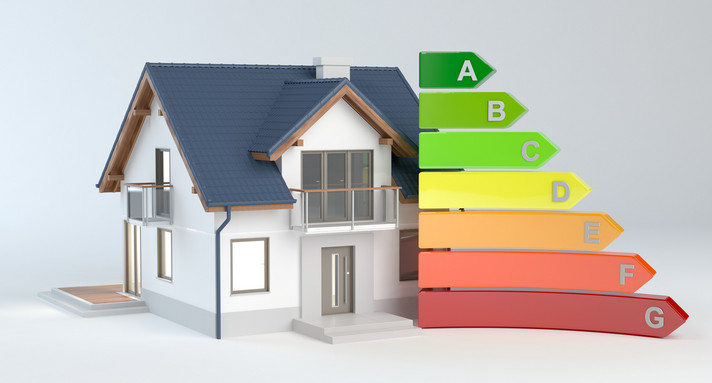There is no point in generating energy that is not being consumed – that is why saved energy is the best energy. In order to reach our goal of cutting in half the final energy consumption for heating and electricity by 2050, we have to start with renovating existing buildings in particular. The energy-efficient renovation of older buildings is the most effective means.
In addition, the conscious use of energy and the use of economical electrical appliances and efficient lighting technology help to avoid a considerable part of the heat and power consumption. Planners, energy consultants of the consumer advice centre of Baden-Württemberg and regional energy agencies, as well as tradesmen help to identify potential savings. In particular, improving the thermal insulation of buildings is key to preparing buildings for a successful energy transition.
With the Renewable Energies Heat Act from 2015, the state government has started early to support the transition towards the use of more renewable energy for heating and hot water in residential and non-residential buildings. The law prescribes that 15 percent of the energy consumed by newly installed heating systems must come from renewable energies. Since 2024, the German Building Energy Act has described how this requirement will gradually extend to 65 percent renewable energy in a building's total energy consumption for heating.
Opportunity for the economy
Energy efficiency is also a great opportunity for Baden-Württemberg's economy. Smart energy management, alternative business and financing models (contracting) for energy investments, and concepts for resource and material efficiency in the production process help to save money and increase competitive capacity. In the crossover technologies alone (e.g. compressed air, refrigeration, ventilation or pumps), there is a savings potential of over 10 percent.
Many new technologies and products that improve energy efficiency and reduce CO2 emissions are developed in Baden-Württemberg and are exported from here. Thus, Baden-Württemberg companies play a role in pushing forward the energy transition.
Important tools for increasing energy efficiency also include the use of waste heat in conjunction with heat concepts, and the use of combined heat and power.
Numerous federal and state funding programs help both private homeowners and businesses in the state to improve their energy balance.

